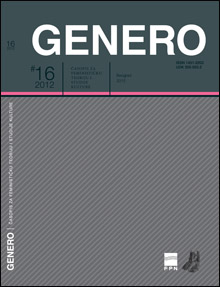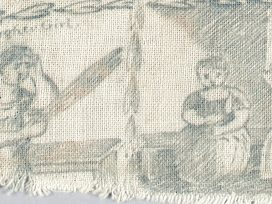
While book publishing is an ailing industry, children’s books are booming. But political attacks and censorship are also threatening this thriving sector.
Genero focuses on feminist theory, which means that a majority of those working on the journal are women. However, the publication is committed to publishing quality articles written by authors of both genders, writes deputy editor-in-chief Katarina Loncarevic.
Genero is the joint project of the Center for Women’s Studies in Belgrade (NGO) and the Center for Gender and Politics at the Faculty of Political Sciences (University of Belgrade). The main focus of the journal is feminist theory and cultural studies. The journal does not have a specific policy on gender where employment policy is concerned, but the majority of people involved with the journal are women because of its focus on feminist theory.
The journal does not have employees, and everyone involved in the journal is either a volunteer or a freelancer. In 2012, Genero‘s two editors (editor-in-chief and deputy editor-in-chief) were women. The international advisory board consists of 11 people (ten women and one man). The editorial board consists of six people, all of whom are female.
The designer of the journal is a freelancer (one man). We have two proof readers, both freelancers (one man and one woman).
All external associates (designer, proof readers, etc.) are paid the same for the same work. So there is no gender pay gap in the journal either a volunteer or a freelancer.
During my term as editor, we included one male member in the international advisory board. The international advisory board itself was introduced during my term as editor, previous to which we only had an editorial board consisting exclusively female members. The members of both boards are not paid for their work.
The financial situation in academic publishing in Serbia is very difficult, so I hope that in the future we will be able to pay honoraria for editors, because all their work now is done on a voluntary basis. As we are a feminist journal, I do not expect more male than female members on either board, even if the financial situation improves in the future. I would expect both boards to remain more or less as they are at the moment. We are very open-minded and one of the principles of the journal is that we are against every kind of discrimination, including gender discrimination. Journal articles are subjected to an anonymous peer review process, so if an article receives at least two positive reviews, it will be published regardless of the author’s gender. I do not think that it is harder to find female authors than male ones. We receive articles written by both men and women. Of course, the field of women’s and gender studies and that of feminist theory is such that there are more female authors than male ones interested in the topic, but we are committed to publishing quality articles written by authors of both genders.
We are very open-minded and one of the principles of the journal is that we are against every kind of discrimination, including gender discrimination. Journal articles are subjected to an anonymous peer review process, so if an article receives at least two positive reviews, it will be published regardless of the author’s gender. I do not think that it is harder to find female authors than male ones. We receive articles written by both men and women. Of course, the field of women’s and gender studies and that of feminist theory is such that there are more female authors than male ones interested in the topic, but we are committed to publishing quality articles written by authors of both genders.
In the current issue, 16/2012, we published nine original scientific papers, six book reviews, and two “In memoriam” articles. Regarding the original scientific papers, seven were written by female authors (one of them is the result of the cooperative work of two female authors), and two by male authors. Five of the book reviews were written by female authors, and one by a male author. Both In memoriam articles were written by female authors.
I believe that during my term as editor, we have published more original scientific papers written by male authors than in the previous period, when male authors were present only as translators or the authors of translated articles. We are currently much more committed to publishing original scientific works by authors of both genders. Again, the specific nature of our journal is such that more female authors than male ones work within the field of feminist theory and cultural studies. I do not expect this to change in any major way in the future.
The owner of the journal, the feminist NGO Center for Women’s Studies in Belgrade, is an independent organization, and during more than 20 years of existence it has not allowed donors or funders to influence its programmes and politics. The same applies to the journal politics and the members of both boards. Given our journal’s field of research, we do not need quotas, because the field of feminist theory is one of the rare fields where the majority of authors, contributors and experts are women.
As a feminist journal, we publish articles that focus on gender from different perspectives. All our issues are devoted to some aspect of gender, from empirical research to philosophical approaches to gender. Authors of the articles published in the journal are of both genders. I do not believe that female authors are “better equipped” to deal with the issues involved than male ones, but it is a fact that more female than male authors are interested in various gender issues.
We absolutely do take gender into account in connection with different fields. Genero is an inter- and multidisciplinary journal, and we publish scientific papers by scholars from different fields (philosophy, sociology, psychology, literature, archaeology, anthropology, arts, social work, etc.). Generally speaking, all the themes with the focus on gender attract more female than male authors, but male authors are present, and that is a very important fact. In our latest issue, we published articles that deal with literature (two female authors), sociology (one female author), anthropology (one female, one male author), archaeology (one male author), philosophy (one female author), cultural studies (one female author), media studies (one female author) and political science (one female author). These data show that both genders are present in different fields of inquiry.
Unfortunately, we have no data concerning gender and audience. We distribute our journal to all the major and local libraries in Serbia and the region, to all university libraries in Serbia, to NGOs, and all interested individuals. Most individuals who contact us regarding the journal and are interested in reading it are students (BA, MA, PhD levels) of the social sciences and the humanities, or experts and researchers working in these fields. The latest issue has received a very positive review in the daily newspaper Danas in Serbia, prompting many students and researchers to contact us and request copies of the journal. Our readers are generally positive regarding the journal, especially because Genero is the only inter- and multidisciplinary scientific journal dealing with feminist theory and gender issues in Serbia (there is a journal ProFemina, but their focus is explicitly on literature).
I do believe that quotas for women could help raise the visibility of female authors, although I would rather advocate for more women on the boards of journals, than arguing for a minimum percentage of women contributors. I would like to see more topics covered in cultural journals that involve gender issues, and in that way, those issues would no longer be perceived as topics purely of interest to gender studies journals. In that way, gender issues could be seen as a relevant topic in more “mainstream” journals, providing more space for female authors dealing with these issues.
Published 14 November 2013
Original in English
First published by Eurozine
Contributed by Genero © Genero / Katarina Loncarevic / Eurozine
PDF/PRINTSubscribe to know what’s worth thinking about.

While book publishing is an ailing industry, children’s books are booming. But political attacks and censorship are also threatening this thriving sector.

Being diagnosed with ADHD can be a relief for those who have struggled long and hard to adopt constraining social norms. For neurodivergent women, masking can lead to poor mental health, substance abuse and hyper-sexuality. Vox Feminae takes a first-hand dive into positive coping mechanisms for the inattentive and/or hyperactive.